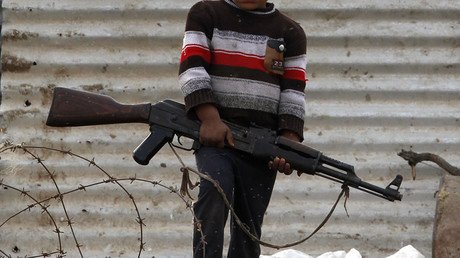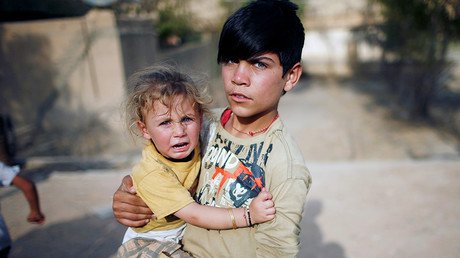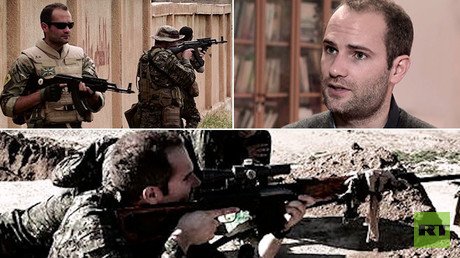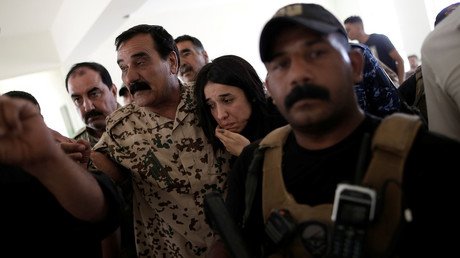‘I ran for a day and a night’: Yazidi girls share blood-curdling stories of ISIS slavery
A woman who spent three years as an ISIS slave and a girl who was only five when taken are among the lucky few to have returned home, while hundreds of Yazidi girls remain in captivity. RT spoke to them about the ordeal.
Samiyah was pregnant when Islamic State (IS, formerly ISIS) militants descended on her village in 2014. After three bitter years of slavery in the former IS Syrian stronghold of Deir ez-Zor she managed to break free and was finally brought home a mere three weeks ago.
RT’s Murad Gazdiev traveled to the northern Iraqi district of Dohuk, where the former captive lives with her mother. She told him of her despair when IS ransacked the village, capturing her husband and almost all of her family. To escape her fate, she chose to take poison. Though it proved not enough to kill her, it was fatal to her unborn child.
“I was left alone with my mother. So I took poison, I decided it was better to die. When they caught me, I thought that since my family, my husband and my house were gone, it would be better to die,” she told Murad.
Soon, Samiyah joined some 3,000 Yazidi women and girls, turned into forced laborers and subjected to daily rape. Seeing the Yazidis as devil-worshippers, their IS captors treated the girls as commodities.
“The men would offer us as gifts. In the evenings, they would get together and trade the women, and have their fun with us,” Samiyah recalls.
IS brutality against the Yazidis was recognized as genocide by the UN Commission of Inquiry on Syria, investigating human rights abuses in the protracted conflict.
Samiyah fled during one of the bombings, breaking the window of her sealed cell. She said she ran for “a day and a night” before a local family sheltered her and told her where the Kurdish YPG units were. She threw herself on the mercy of the YPG as soon as she reached them, and within two weeks she had made her way home.
Inas is now nine years old, and her mother found herself in a state of utter despair when all her family members either perished or went missing, including her then 5-year-old daughter.
“It was indescribable for me. Life turned into endless suffering, tears, and hunger. I couldn’t do anything but cry,” she told RT.
Nevertheless, she did not give up hope of finding her child. She posted the girl’s photo on Facebook, and everything changed overnight when someone contacted her relatives, reporting having seen Inas.
In order to reunite with her daughter, she first had to collect $10,000, a ransom demanded by the human traffickers.
“The seller was in Turkey, but said he would deliver her to Baghdad. We paid over 10,000 dollars,” she told RT. After four years away from her mother, Inas did not at first recognize her. The child seems happy, but it will undoubtedly take her some time yet to adjust to a normal life after all that she has been through.

















